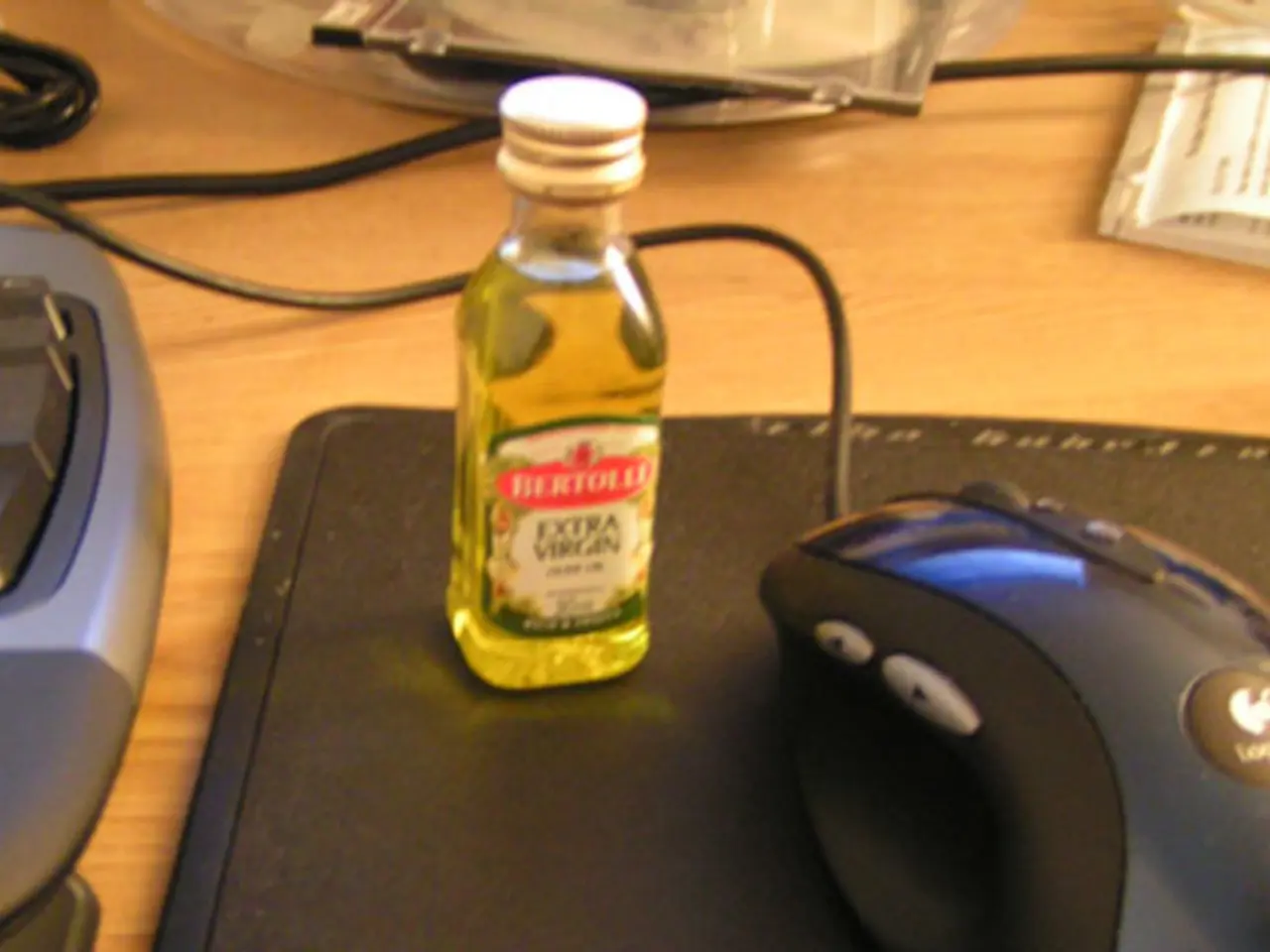Unlocking Enhanced Creativity and Streamlined Thought Processes
In our modern, fast-paced world, creativity and mental flow are essential for success in various aspects of life. Whether you're an artist, a scientist, or a businessperson, the ability to think creatively and maintain a state of focused productivity is invaluable. Here's a look at some science-backed strategies and nootropics that can help you unlock your creative potential and maintain mental flow.
Creativity often emerges during moments of mental downtime, such as walking, showering, or relaxing. However, stress, fatigue, or overstimulation can block creativity. To counteract these obstacles, techniques like breathing exercises, nature exposure, or meditation can lower mental friction and help you get "in the zone," where creativity and flow are maximized by a combination of alertness and a relaxed mental state.
One such technique is the use of nootropics, also known as smart drugs or cognitive enhancers. These substances are designed to support brain functions that promote creativity and mental flow, such as relaxed focus, neurotransmitter balance, neuroplasticity, and stress resilience.
Several nootropics have been scientifically validated for their effectiveness in this regard. L-Theanine, for instance, is strongly linked with creativity enhancement. It promotes alpha brain waves and a state of relaxed focus, making it ideal for creative flow states.
Another notable nootropic is L-Tyrosine (including its form N-Acetyl L-Tyrosine or NALT). This amino acid is a precursor to dopamine and other catecholamines critical for attention and executive function, especially under stress or multitasking. It helps maintain mental clarity and working memory in demanding situations, thereby supporting mental flow and idea execution.
Rhodiola Rosea, an adaptogen that modulates stress and cortisol levels, is another valuable nootropic. It reduces mental fatigue and cognitive burnout to keep creativity and cognition performing well under pressure.
Bacopa Monnieri, a natural herb, supports several neurotransmitters such as serotonin, dopamine, acetylcholine, and GABA, enhancing memory, calm cognitive function, and the brain’s stress resilience—important for sustained creative thinking.
Citicoline (Cognizin®), a nootropic that boosts brain energy, attention, memory, and synaptic plasticity, is also worth mentioning. It facilitates neural cell membrane repair and enhances cognitive performance essential to mental flow and idea execution.
Other nootropics that promote alpha brain waves, such as Citicoline, can help individuals get "in the zone," where creativity and flow are maximized. Other supportive compounds include Vitamin B6 for neurotransmitter synthesis, and brain blood flow enhancers like Ginkgo Biloba and Vinpocetine, which improve memory and focus.
In practice, multi-nootropic stacks combining these ingredients are often used to synergistically boost creativity by supporting diverse brain functions including stress regulation, neurotransmitter balance, energy metabolism, and relaxed alertness.
To stimulate creativity and mental flow, it's also important to schedule time for deep, uninterrupted work (90-120 minutes). Alternating between focus and daydreaming can also stimulate creativity and mental flow.
Bacopa Monnieri supports memory and mental processing speed, helping to hold more ideas at once and make connections between them. Rhodiola Rosea, on the other hand, reduces fatigue and supports cognitive flexibility under pressure, making it easier to stay mentally fluid during demanding or spontaneous creative sessions.
To stimulate creativity and mental flow, it's also beneficial to prime your brain with novel inputs. Cross-pollination of ideas from different fields often leads to creative breakthroughs. Clarifying goals but leaving room to explore can also stimulate creativity and mental flow.
In conclusion, a combination of science-backed nootropics, mindfulness techniques, and strategic work habits can help you unlock your creative potential and maintain mental flow. By supporting a calm, focused mindset, promoting relaxed alertness, and fostering cognitive flexibility, you can enhance your ability to generate new ideas, solve problems in novel ways, and connect seemingly unrelated concepts—all crucial aspects of creativity and mental flow.
- In our fast-paced world, maintaining creativity and mental flow is crucial for success, whether in art, science, or business.
- Techniques like breathing exercises, nature exposure, or meditation can lower mental friction and help achieve a state of focused productivity.
- L-Theanine, a nootropic, promotes alpha brain waves and a state of relaxed focus, ideal for creative flow states.
- L-Tyrosine (or N-Acetyl L-Tyrosine) is another nootropic that helps maintain mental clarity and working memory in demanding situations.
- Rhodiola Rosea, an adaptogen, reduces mental fatigue and cognitive burnout to keep creativity and cognition performing well under pressure.
- Bacopa Monnieri enhances memory, cognitive function, and the brain’s stress resilience, important for sustained creative thinking.
- Citicoline boosts brain energy, attention, memory, and synaptic plasticity, essential for mental flow and idea execution.
- Other nootropics like vitamin B6 and brain blood flow enhancers (Ginkgo Biloba, Vinpocetine) improve memory and focus.
- To stimulate creativity and mental flow, schedule time for deep, uninterrupted work and alternate between focus and daydreaming.
- Priming the brain with novel inputs and clarifying goals but leaving room for exploration can also foster creativity and mental flow.




